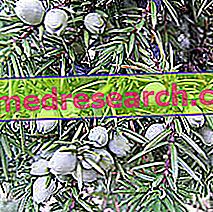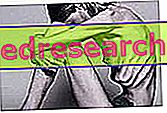More than a disease in itself, the cough is a defensive reflex of the organism due to irritation of the respiratory mucosa: the cough occurs when a foreign substance or particle comes into contact with these mucous membranes, obstructing the airways.

Cough may or may not be accompanied by sputum: therefore, cough can be distinguished from dry cough.
What to do
- Keep the environment at the right humidity (40-60%): in the cold months, use humidifiers or apply a wet rag over the radiator
- Avoid polluted places and smoking rooms
- Cover well before leaving home with scarves and heavy clothing (during the winter months and in the intermediate seasons)
- In the case of cough associated with nasal congestion (stuffy nose), fluidize the mucus using nasal vaporizers
- Wash your hands often
- Avoid temperature fluctuations as much as possible
- Strengthen the immune system
- Cover your mouth with your hand or a handkerchief before coughing
- If blood leaks out after a cough, call a doctor immediately.
What NOT to do
- Swallow the phlegm
- Smoking: smoking, both passive and active, seems to inhibit the immune defenses, predisposing the subject to infections
- Smoking in the car or at home
- Attend crowded places: the risk of getting infections in the respiratory tract increases
- Keep the environment at 40% lower humidity: in similar conditions, the ability of the respiratory mucous membranes to purify the inhaled air is inhibited
- Put your hands in your mouth
- Take antibiotics without a prescription
What to eat
- Follow a healthy and balanced diet, free from excess
- Take hot drinks, such as tea, hot milk, broths, soups, useful to facilitate the fluidization of the mucus
- Hot milk mixed with honey is a very ancient remedy, useful for softening the mucous membranes of the throat (irritated by coughing) and favoring the fluidization of the mucus
- Take large portions of fruit and vegetables as foods rich in antioxidants (especially vitamin C and vitamin E)
- The onion is included in the list of "medicine foods": it has disinfectant, decongestant and expectorant properties
What NOT to Eat
- If the cough is accompanied by nasal congestion, it is advisable to avoid alcohol: it seems that alcohol can worsen the swelling of the nasal mucosa
Natural Cures and Remedies
- Natural cough remedies are a great alternative to classic drugs. The active ingredients can be used in infusion (infusion to drink) or inhaled in the form of steam (suffumigio):
- Anise ( Pimpinella anisum L.) → balsamic, expectorant, anti-inflammatory properties, effective remedy for oily cough
- Eucalyptus ( Eucalyptus globulus Labill) → anti-inflammatory, expectorant, balsamic, antiseptic and antiviral properties: remedy indicated for oily cough. Indicated as a suffumigio
- Farfara ( Tussilago farfara ) → antitussigenic, expectorant and calming properties
- Horehound ( Marrubium vulgare L) → mucolytic natural remedy and cough sedative
- Mallow ( Malva sylvestris) → epithelium-protective properties, anti-inflammatory of the mucous membranes, excellent remedy for dry cough (infusion)
- Licorice ( Glycyrrhiza glabra ) → expectorant, mucolytic properties
- Poppy ( Papaver somniferum ) → powerful antitussive properties, comparable to codeine and dextromethorphan
- Piantagine ( Plantago lanceolata ) → sedative, anticatarral properties
- Tiglio ( Tilia cordata ) → mucilaginous drug with protective properties of pharyngeal and tracheobronchial mucosa. Excellent remedy for dry cough (infusion).
Pharmacological care
The cure for cough depends on the underlying cause:
- Allergic cough: the ideal treatment consists of antihistamines such as diphenhydramine (eg Aliserin)
- Oily cough should be treated with:
- antitussive-expectorants, such as Guaifenesina (eg Vicks Tosse Fluidific) or Benzonatato (eg Tessalon)
- mucolytics, such as acetylcysteine (eg Fluimucil), bromexina (eg Bisolvon Linctus)
- For cough dependent on chronic bronchitis, narcotic analgesics are recommended. For example: codeine (eg Codein, Hederix Plan), dextromethorphan (Es. Aricodiltosse), Hydromorphone (eg Jurnista)
- Antibiotic therapy is recommended for cough dependent on bacterial infections. The drugs most used for this purpose are:
- Tetracycline (eg Tetrac C), for chlamydial or mycoplasma infections
- Flucloxacillin (eg Flucacid) for streptococcal infections
- Clarithromycin (eg Biaxin), for Haemophilusinfluenzae infections
Prevention
- Not smoking
- Avoid any possible contagion situation, especially in case of suspicion of diseases affecting the respiratory tract
Medical treatments
- The cough does not require any specific medical treatment, unless it is an expression of pathologies that require it (eg esophageal cancer, pleural tumor, lung cancer)



